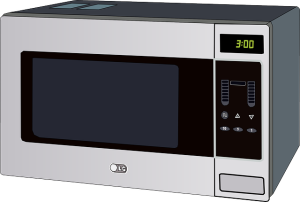to practise sorcery / witchcraft, to conjure (up) ![]()
[verb]
[to-ver-de, ge-to-verd]
 “Toveren” is often used in its literal sense: witches and sorcerers do it all the time 🙂 It can also be used when someone does something which seems impossible.
“Toveren” is often used in its literal sense: witches and sorcerers do it all the time 🙂 It can also be used when someone does something which seems impossible.
Examples:
– “De tovenaar leerde de toverspreuken uit zijn hoofd.”
(“The sorcerer learned the magic charms by heart.”)
– “Harry Potter gaat naar de school van tovenarij Zweinstein.”
(“Harry Potter attends the school for witchcraft Hogwarts.”)
– “Toen ik vroeg of zij een tissue had toverde zij een hele rol keukenpapier te voorschijn uit haar tas.”
(“When I asked her for a tissue, she conjured up an entire kitchen roll out of her purse.”)
– “Wil je binnen 10 minuten een artikel van twee pagina’s? Onmogelijk! Ik kan niet toveren.”
(“Do you want a two-page article within 10 minutes? Impossible! I’m no wizard.”)
– “Wie heeft van de toverdrank gedronken? Asterix of Obelix?”
(“Who drank (of) the magic potion? Asterix or Obelix?”)
– “Hans Klok is een van de bekendste Nederlandse illusionisten/goochelaars.”
(“Hans Klok is one Holland’s most famous illusionists.”)
Related words:
– Goochelen: to conjure, to perform conjuring tricks [verb] [goochelde, gegoocheld].
– Goochelkunst: conjuring trick [noun] [de goochelkunst, de goochelkunsten].
– Goochelaar: illusionist [noun] [de goochelaar, de goochelaars].
– Tovenaar: sorcerer [noun] [de tovernaar, de tovenaars].
– (Tover)heks: witch, sorceress [noun] [de toverheks, de toverheksen].
– Toverspreuk: magic spell, charm [noun] [de toverspreuk, de toverspreuken].
– Toverkol: witch, hag [noun] [de toverkol, de toverkollen].
– Toverdrank: magic potion [noun] [de toverdrank, de toverdranken].
Extra:
Dutch singer Herman van Veen – who slightly resembles a sorcerer himself – had a hit in the eighties with his song “Toveren“.

 The verb “aangaan” is mostly used in the translation of “to be switched/turned on” or “to be activated”. But as always there is a completely different meaning, in this case “to concern”. “Dat gaat je niets/niks aan” can therefore also be translated with “that does not concern you”. Of course you can create your own variation of the phrase, see the Examples.
The verb “aangaan” is mostly used in the translation of “to be switched/turned on” or “to be activated”. But as always there is a completely different meaning, in this case “to concern”. “Dat gaat je niets/niks aan” can therefore also be translated with “that does not concern you”. Of course you can create your own variation of the phrase, see the Examples. If you think that “magnetron” is the Dutch translation of the name of a character from the
If you think that “magnetron” is the Dutch translation of the name of a character from the 
